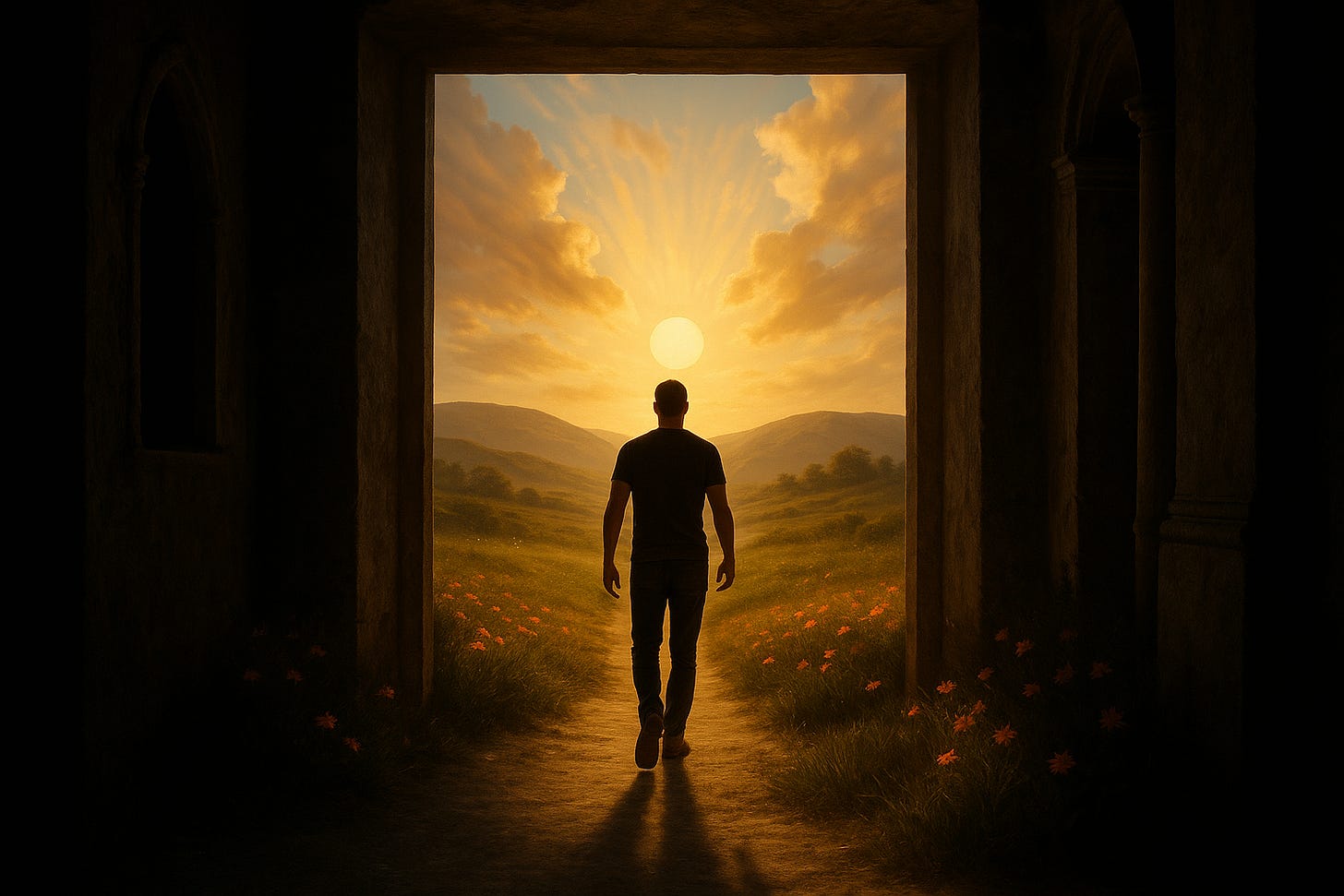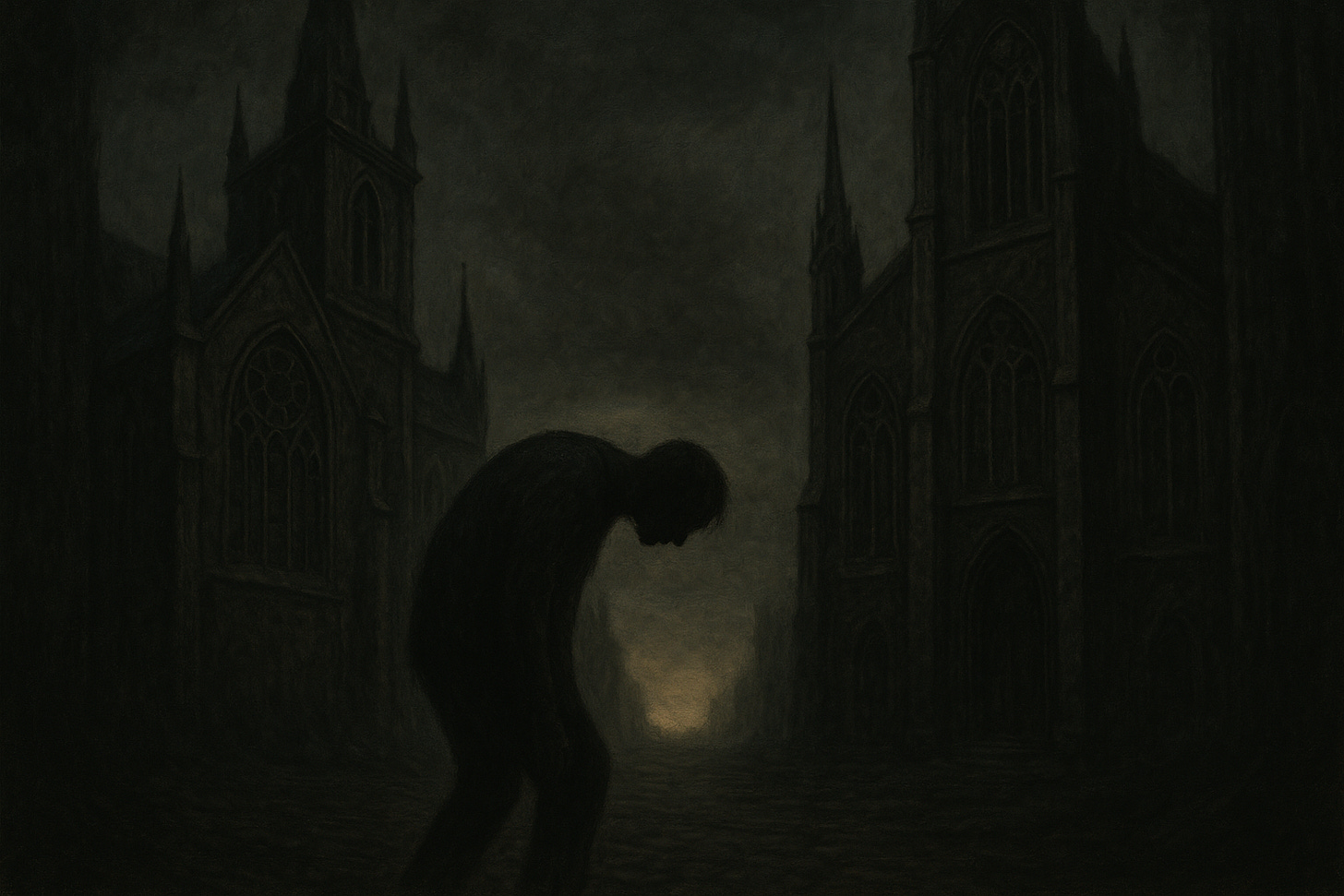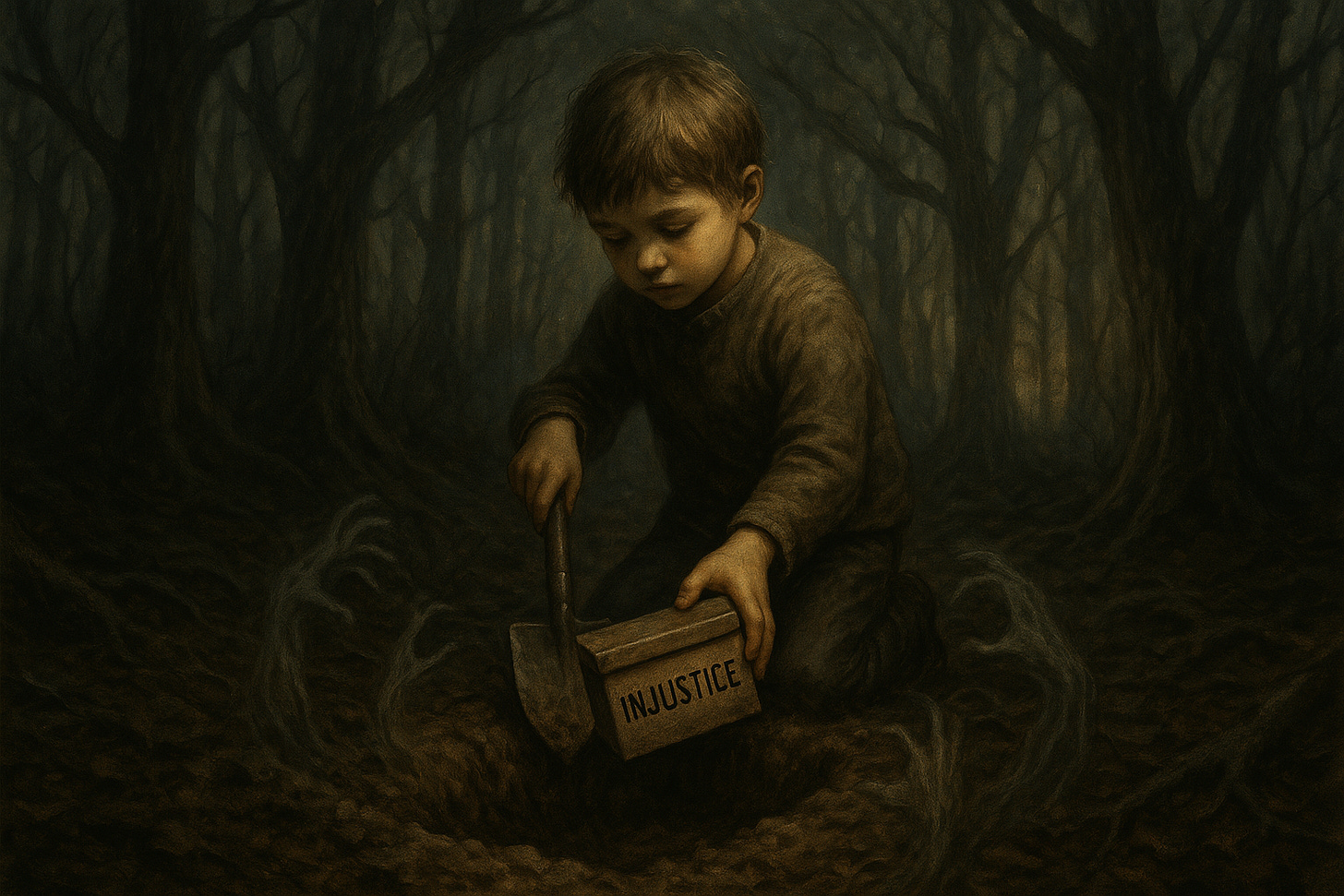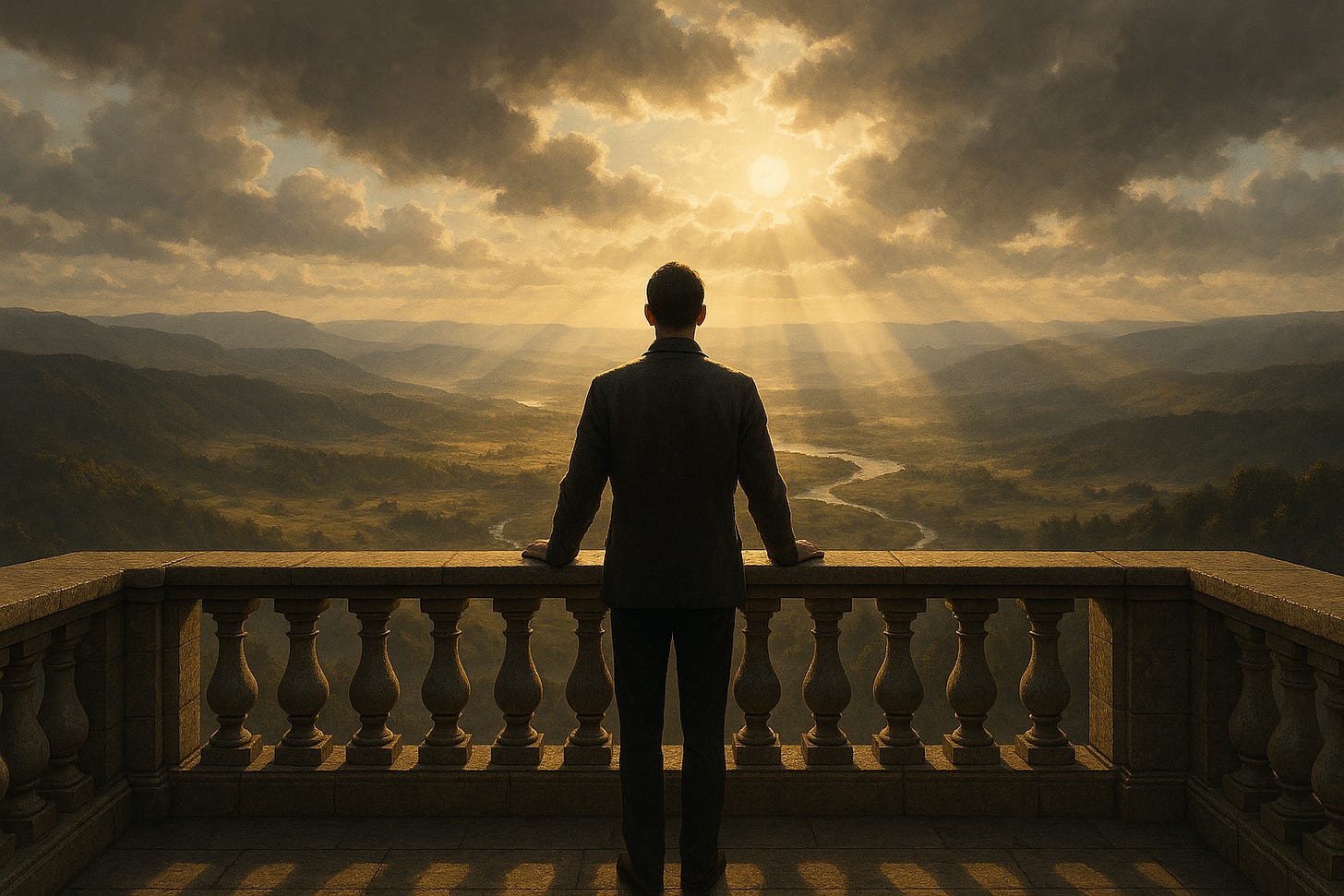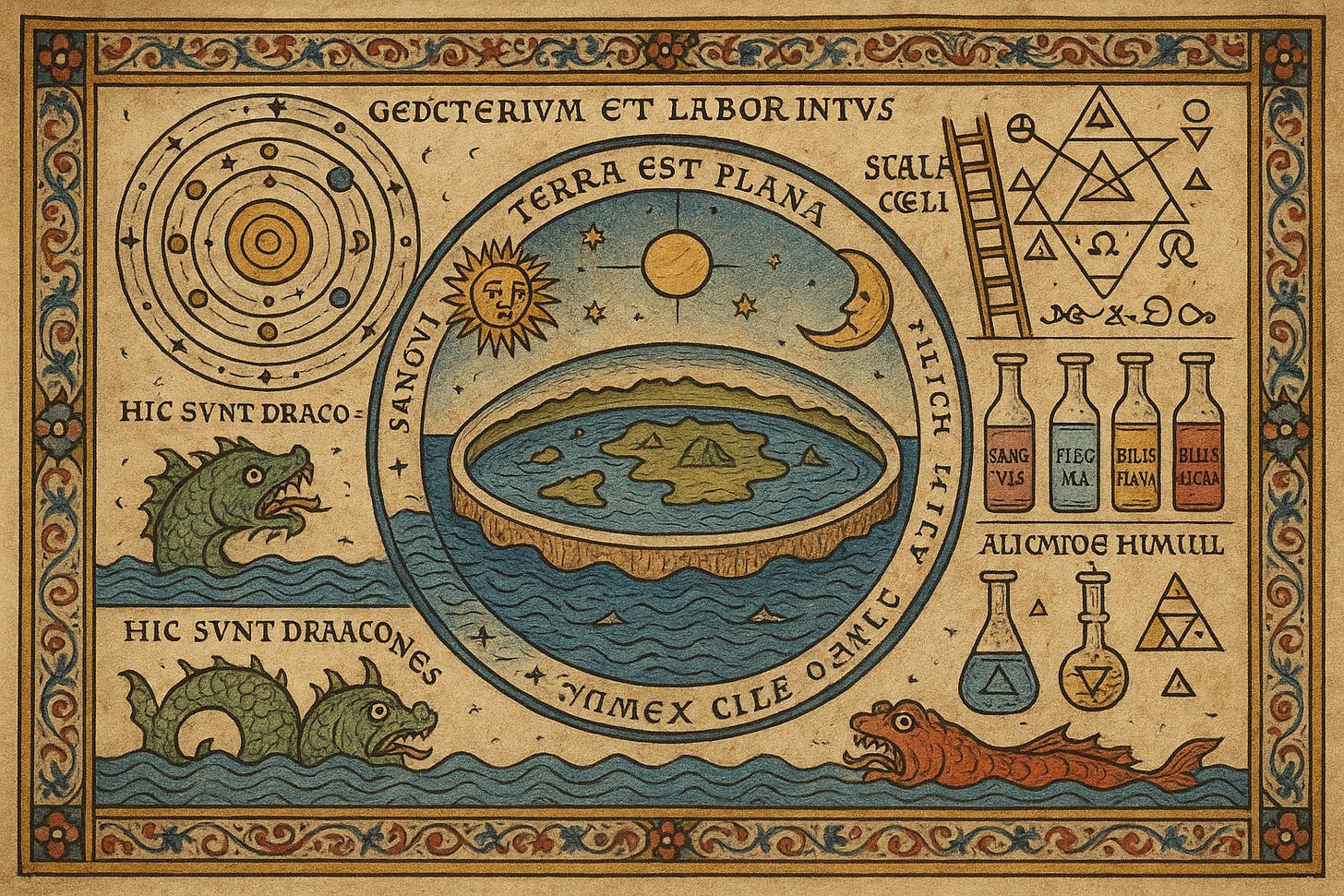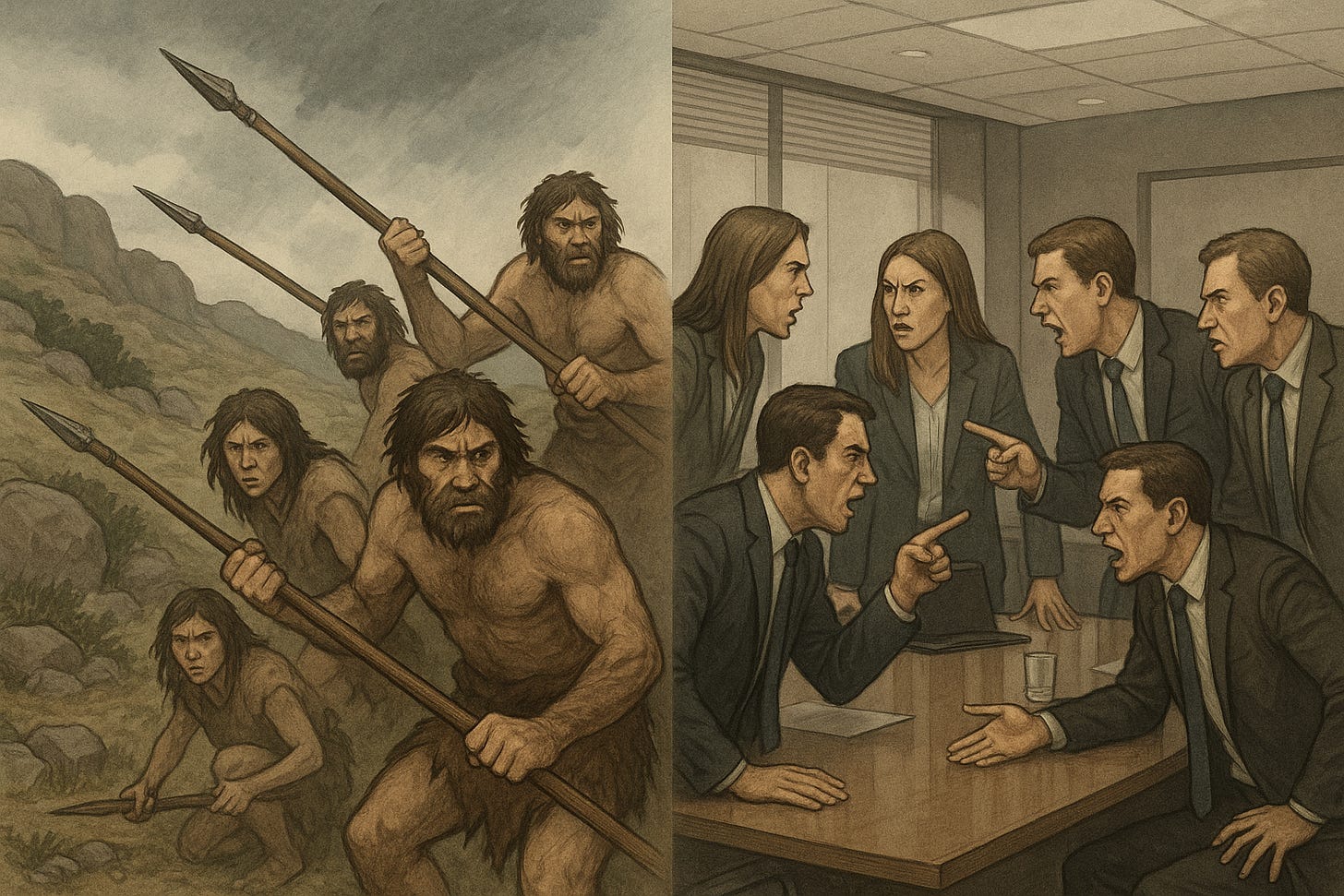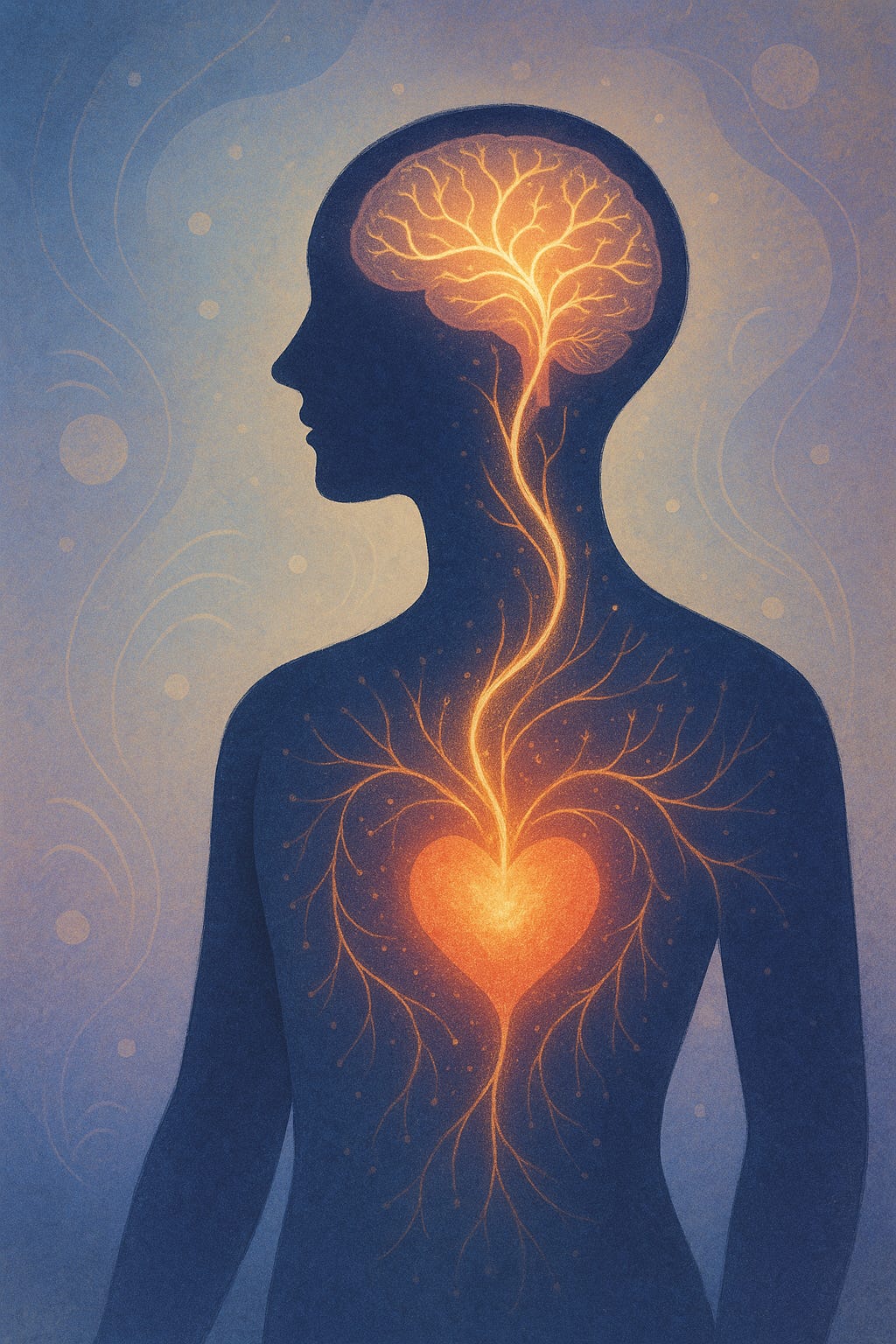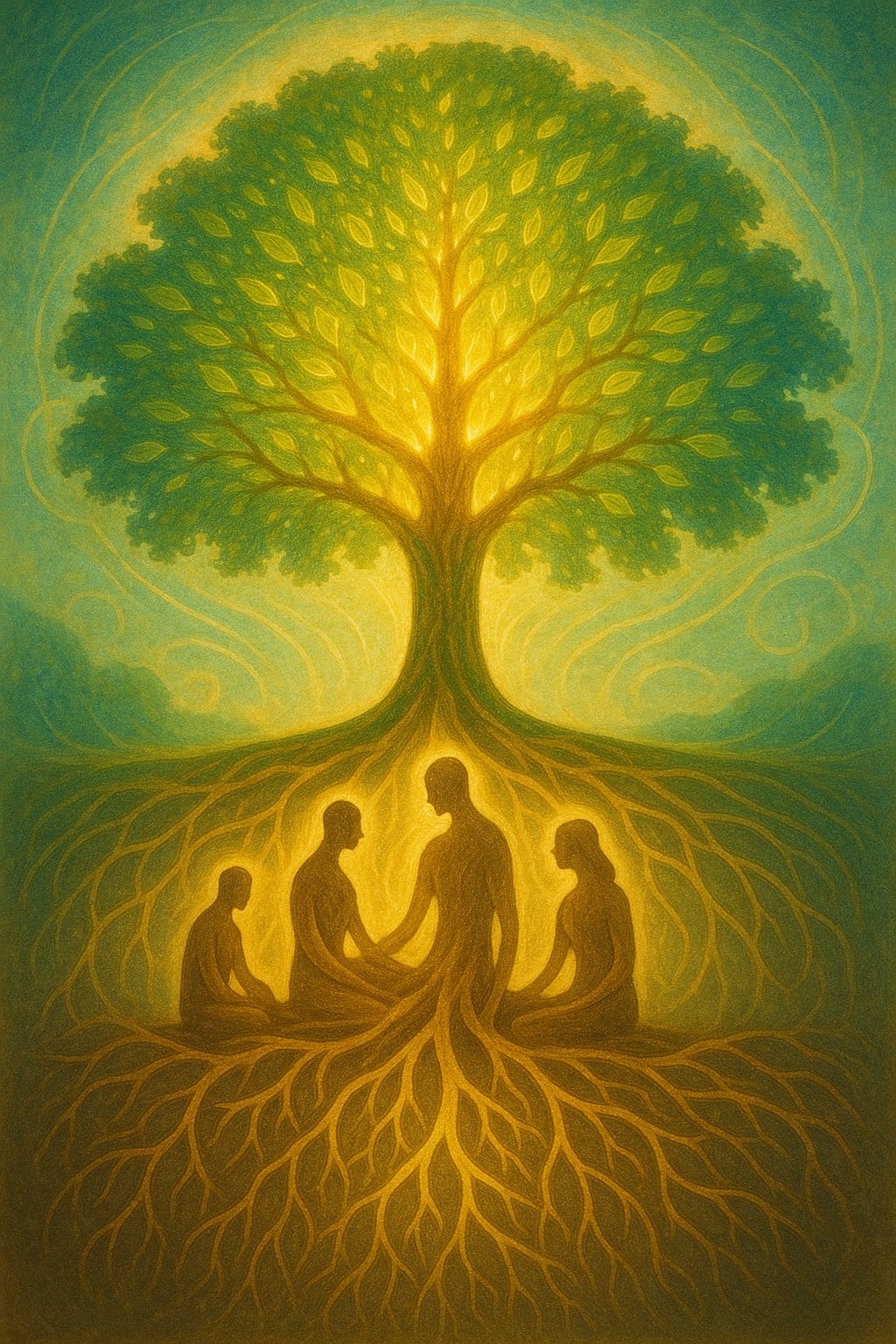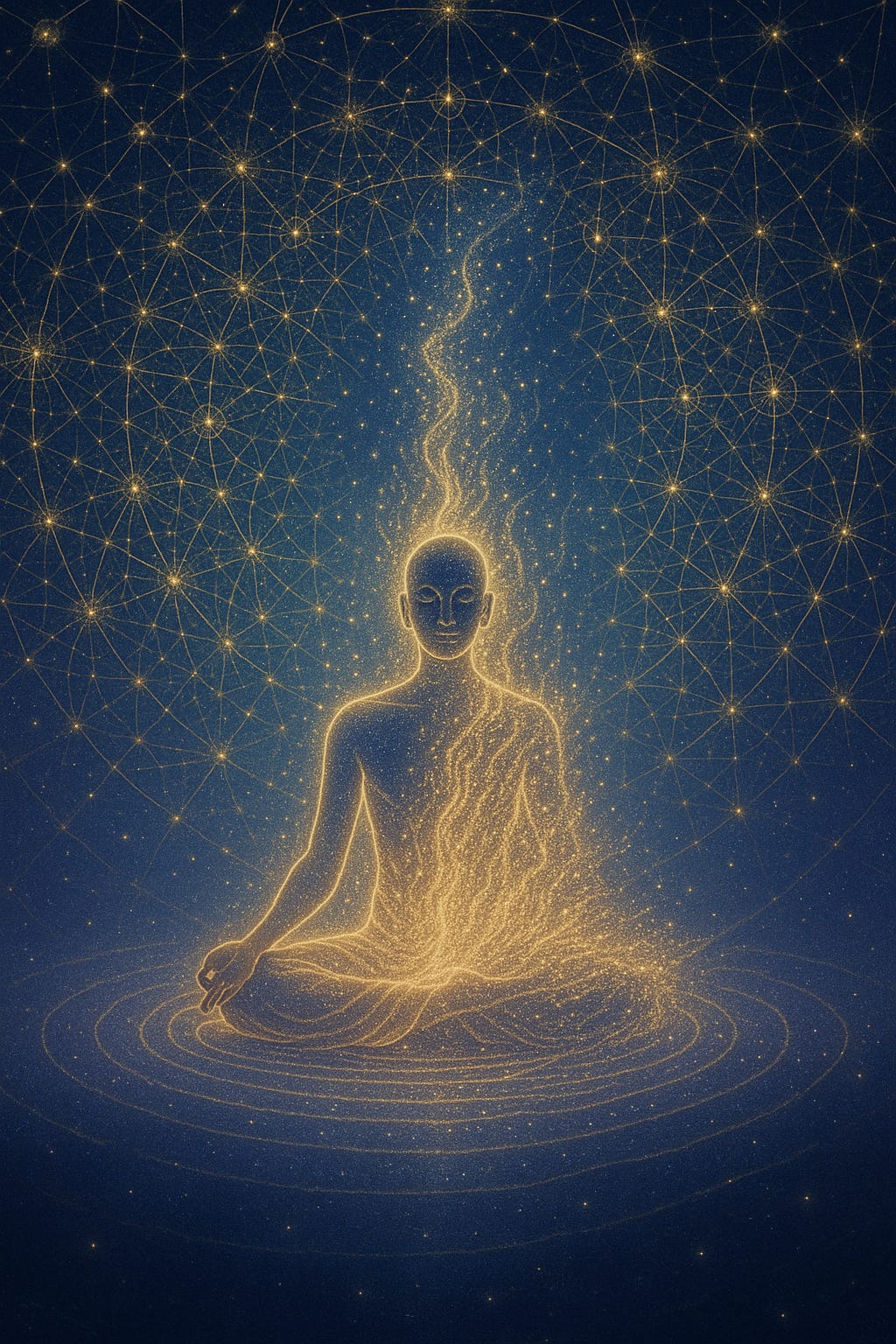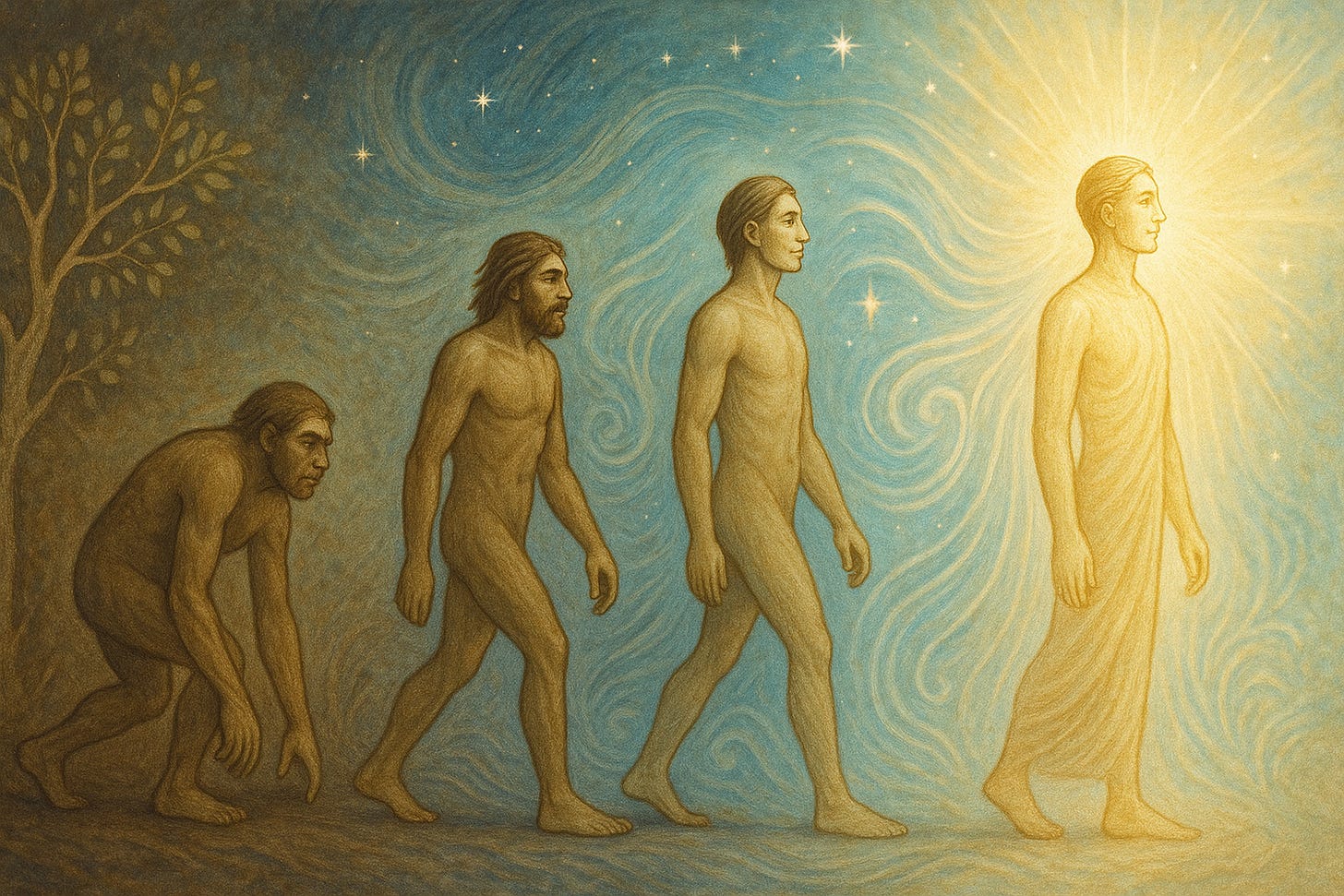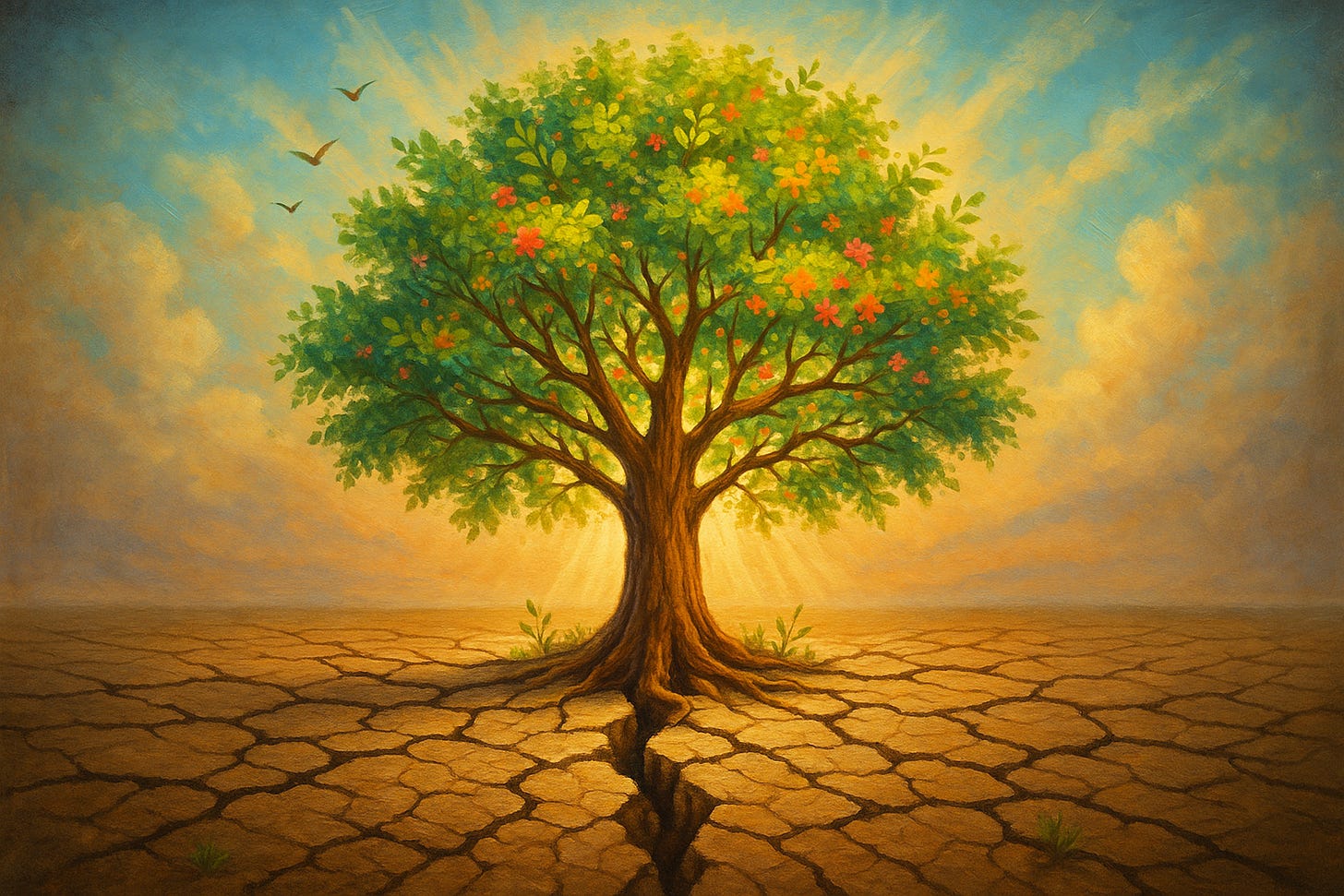Tran-Sin-dence
Reframing the archaic concept of “Sin” for a new era of maturing adult freedom, responsibility, and creative potential
“The illiterate of the 21st century will not be those who cannot read and write, but those who cannot learn, unlearn, and relearn.” ~ Alvin Toffler
The mere mention of the word “Sin” these days, can rattle cages, raise prickly little hairs on the nape of necks, prompt hot and cold sweats, and conjure images of dark, foreboding, starch-collared Victorian preachers - prim, proper, staunch, self-righteous puritans - judging and condemning a flawed, wanton, depraved, and ultimately damned humanity.
Yep. That’ll rattle a few cages for sure. It rattles mine. So why use the term “Sin” at all? It’s broken, lame, redundant, outdated, demeaning, oppressive, disempowering, coercive, and irrelevant BS… isn’t it?
Yep. Maybe. Probably.
Indeed, we could… simply turn our backs on such flawed and antiquated systems that no longer serve us. Move on. Get a life. Live in a new way that does justice to our noble potential as maturing adult human beings. Right?
Well, maybe. But here’s the catch…
Sometimes the “old ways” get stuck, deep down, under our skin. They throw down hooks and tendrils that are not so easy to extricate ourselves from. Sometimes it’s not as simple as just turning and walking - or even sprinting - away.
I speak here from (painful) experience. Writing about earlier chapters of my life is one way I’ve learned to surface, process, and heal old unprocessed childhood injustices. I hope these stories might also help others experiencing similar challenges.
So, in this essay, I’d like to unpack a few principles, share some thoughts, reflections, insights, and practices. Perhaps together, we might even find a way to live happier, healthier, more peaceful, mutually caring, and intentional lives.
Setting the Scene for Renewal
The Dark Past
“One does not become enlightened by imagining figures of light, but by making the darkness conscious.” ~ Carl Jung
Some of us - me included - were raised under the hypnotic influence of dogmatic doctrines inherited unquestioned from a largely obscure past; weaned on a - psychologically and developmentally - toxic elixir of fear, shame, guilt, and coercion; peppered though with threats of eternal damnation for the curious, the naughty, or - worst of all - the doubtful and disobedient. In such an oppressive world, “Believe and Obey” is the supreme measure of moral rectitude.
Burying the Corpses of Injustice
“ If you can’t make the unconscious conscious, it will direct your life and you will call it fate.” ~ Carl Jung
As small children, we often bury the bad stuff. Children are innocent and vulnerable; it takes practiced maturity to set safe boundaries for our own wellbeing. Once an injustice is served upon them, children (and often adults too) can lack the spacious, impartial presence to witness and process overly traumatic experiences.
Unbearable wounds can simply get buried deep in the shadowland of the subconscious - forming the roots of complexes and neuroses that can plague our adult lives. These complexes remain buried - like ticking time bombs - ready to be triggered, and lurch forth from the grave like a zomboid Lon Chaney Jr. in some schlock horror matinee.
Unprocessed complexes can revisit us again and again, uninvited and in unintended ways, disrupting our relationships and derailing our best laid plans for a better life.
Facing Our Demons
It’s old wisdom that, at some point in our dream life, we can learn to stop running from the monsters and instead turn, face them, and befriend them. Hug them. Listen to them. Learn from them. Hear the message they have been longing to deliver. And then, thank them, wish them well, and bid them on their way. “Night Ralph. Night George”.
Perhaps they may return again one day. And, this time, if and when they do, we might meet them with a degree of objectivity, greet and entertain them as old familiar friends with messages to share - rather than perpetually shrinking away as if they were insidious arch-villains.
What's being suggested here is that - when the time is right - it may be healthy to review old concepts from a newly elevated, objective perspective. This can help put them in their proper place - sorting the grain from the chaff, the gold from the dross, the useful from the BS.
“God give you the grace to purge this place, And peace all around may be your fortune”. ~ Brian May, Queen (“The Prophet’s Song”)
The View from the Balcony
Some leadership programs refer to “The Balcony”: a more elevated, objective, and impartial level of consciousness - a space of self-reflection and self-awareness. From this perspective, we can experience increased safety and presence, allowing us to view what arises in our bodies, emotions, and minds - with open curiosity.
From the Balcony, as maturing adults, we can learn to view and understand “old redundant patterns” - and the sensations, emotions and thoughts they can still trigger - with a spaciousness and objectivity that may previously have been unattainable. And, we can learn to see the purpose, meaning, and limitations of these challenging principles at play.
Befriending the Enemy
“If you want to make peace with your enemy, you have to work with your enemy. Then he becomes your partner.” ~ Nelson Mandela
There’s a great story you may have heard: the “Christmas Truce of 1914.” On Christmas Eve, during World War I, German and British soldiers along the Western Front laid down their arms, climbed out of the trenches, exchanged greetings, sang carols, shared food and cigarettes, and even played soccer in "No Man's Land." After this, the men returned to the trenches, but - not surprisingly - they had lost their appetite for the fight. Compassion arose from witnessing the common humanity of the enemy.
Similarly, a “balcony” perspective can help us to face our inner demons—our fears, guilt, shame, anger, sadness, depression, resentment, and other negative complexes. This can lead gradually to acceptance, then to understanding, forgiveness, inner clearing, and self-liberation.
‘The cave you fear to enter holds the treasure you seek.” ~ Joseph Campbell
By learning to get behind and underneath lingering anger and resentments, we can better understand their source and begin to make peace with the deeper core wounds from which they spring. As mature adults, we do not need to condone old injustices in order to forgive them. In compassionate forgiving, we liberate ourselves - lifting the burden of judgment and condemnation we may carry.
As mature adults, we can also now set safe boundaries for ourselves and those we love.
Understanding is the Key to Acceptance
Ironically, the concept of “Sin” can be unpacked to reveal a healthy purpose.
Understanding the healthy “ego-logical” purpose of “Sin” in our evolutionary inheritance can help us to defuse its emotional charge - as a demonic concept - and instead intentionally transform limiting behaviours and beliefs to access “eco-logical” intelligence and flourishing for all. You might call this a type of self-induced “salvation.”
The internet, search engines, social media platforms, and now AI, give us access to a diversity of cultural perspectives and wisdom traditions as never before.
The rich insights and extraordinary diversity of healthy, objective contemporary perspectives can - by comparison - help expose and illuminate old, toxic, archaic, subjective frames of reference. Just seeing the problem clearly, and naming it, allows us to engage with it with greater courage and self-confidence - a radical first step toward newfound freedom and self-liberation.
The Old Pre-Science
Christianity is based on ancient Western “wisdom” traditions, that used the “science” - or rather “pre-science” - of its time to describe the world and our place in it. It was, of course, an imperfect science, prone to the whims and machinations of all-powerful “holy emperors” with personal agendas of power, control and domination.
From a more evolved modern moral perspective, the primitive violent and oppressive “ethics” of authoritarian colonialism and dogmatic fundamentalism - both expressions of ego-system awareness - are starting to appear, to most of us, to be questionable to say the least.
But…
“History is written by the victors” ~ Winston Churchill
… and…
"We know through painful experience that freedom is never voluntarily given by the oppressor; it must be demanded by the oppressed." ~ Martin Luther King Jr.
The concept of "sin" has a long history, traditionally framed as moral failings or spiritual transgressions—attempts to understand overwhelming chaos with the simplistic “pre-science” of the era.
We do well to remember that the medieval concept of “sin” emerged at a time when: the Earth was thought flat; the Sun revolved around the Earth; printing presses were millennia away; books were rare; and most people were illiterate and relied on religious authorities for a prescribed prepackaged understanding of the world.
For society, the critical questioning mind was only just beginning to emerge - and on the occasions that it did arise, it was quickly - often violently - suppressed by those wielding power.
"The most potent weapon of the oppressor is the mind of the oppressed." ~ Steve Biko
Fast Forward to the Contemporary World
Even though the current state of global affairs might sometimes suggest otherwise, we have come a long way since these “bad old days.” Under the self-critiquing lens of modern science, our understanding of the world and our place in it has radically evolved. So, too, has our understanding of “sin,” which is now far more sophisticated and nuanced.
Through modern psychology, human development, philosophy, sociology and mythology, “sin” is now viewed as self-defeating habits, emotions, or mindsets that undermine our potential for individual and collective flourishing. The term itself has largely disappeared from contemporary dialogue, replaced by language and data from scientific research across diverse fields.
But part of our purpose in this particular essay is to unveil the mystery of the “old ways” and:
Notice how the concept of “sin” arose;
Understand how it became co-opted as a tool of power and coercion by ruling elites of an authoritarian church and state
Discern the baby from the bathwater,
See clearly what is still useful, and what no longer serves us;
Rewrite your own story, as the author of your own Life.
“ Don’t be satisfied with stories, how things have gone with others. Unfold your own myth.” ~ Rumi
Pressure Blasting and Up-Cycling the Concept of “Sin”
Overcoming what previous generations called “sin” is often presented as selfless sacrifice. At the level of ego, it is that, too - the “ego as boss” is sacrificed, but in its place, a higher level of objective consciousness arises, in service to something larger than the self. Ego-system awareness is transformed and upgraded to Eco-system awareness and service to the fullness of Life.
In a surprising twist of meanings, overcoming “sin” - far from mere sacrifice in a self deprecating way - is found to be the key to individual and collective liberation.
But to enjoy this liberating potential, the concept must first be stripped of the debilitating, dehumanizing, and infantilizing influences of politico-religious power structures that have accrued over millennia.
Comparative Wisdom Traditions
“You must leave your parents’ house. You must leave the place you were born. You must leave your father’s house and go into the forest. Only then can you see with unclouded eyes.” ~ Joseph Campbell
Now for the good stuff. Let’s look at how different traditions and frameworks explain the roots and purposes of sin (or analogous concepts), and how we might intentionally transform these behaviors to evolve from ego-system survival to eco-system flourishing.
This essay is more than a curious overview of old moralism. It has the power to raise awareness of subtle systemic injustices; and then allow us to intentionally focus on a world of betterment we might create together. The question is no longer: “Which is the one true way?” Sorry to be that guy, but there no longer appears to be a magical, exclusive, god given, “one true way”!
Don’t take my word on that, or on anything else for that matter; or, anyone else’s word either. Rather…
Look around. Test reality in the laboratory of your own Life. Trust what you find there - what you discern for yourself.
In a globally connected age, we now have a rich tapestry of mutually enriching perspectives. Wisdom is their common denominator. Discernment of that wisdom comes from within… you. You are your own primary consultant on your Life. Even if you choose to delegate that responsibility to some other person or institution, that too is a choice that “you” made. Adult responsibility is ours, whether we recognise it, and own it, or not.
Today’s emerging multiplicity and complexity now requires new inner resources to process and integrate. We need greater discernment, openness, acceptance, mutual care and respect, self-reflection, courage, curiosity, creative exploration, empathy, compassion, collaboration, open dialogue, authenticity, and objectivity. The great news is that all these capacities can be unlocked by some simple, universal practices—but more of that, a little later.
Reframing Sin Across Different Traditions
1. Christian Theology: Sin as Moral Failing and Divine Transgression
In orthodox Christian tradition, sin is seen as humanity's inherent imperfection and separation from God. Originating in the story of Adam and Eve, sin is “missing the mark” of divine perfection—a moral failing that necessitates repentance and redemption.
This framework emphasizes guilt, shame, and self-judgment, coupled with the hope of salvation through an external savior.
Institutionalized Christianity:
Frames the human dilemma as a “dire insurmountable problem”; and then
Offers a “one and only solution,” which each of some 40,000 Christian institutions believe they alone uniquely possess.
Here, sin is not just an individual failing but an inherited condition requiring external intervention for reconciliation with God. The individual is helpless to overcome their flawed nature, and entirely reliant on the external saviors of church and messiah.
2. The Enneagram: Sin as Personal Vice and Transformational Potential
Around 590 CE, Pope Gregory I posited the “7 deadly sins.” In the early 20th century, George Gurdjieff introduced the ancient Enneagram to the West. The Enneagram transcends and includes the church’s “7 deadly sins” in “9 vices.”
The Enneagram introduces “metanoia” as “maturing adult responsibility for self-transformation,” effectively replacing and denouncing the earlier framework of “infantile dependence on external others for redemption.”
The Enneagram reinterprets sins as personal vices or emotional fixations deeply ingrained in personality types—but entirely capable of being transformed.
Unlike the Christian framing, the Enneagram empowers the individual, by shifting the focus from guilt and shame to self-awareness and intentional transformation.
Each "sin" is a temporary distortion of a higher virtue that can be reclaimed through mindfulness, self-reflection, and growth. Pride can be transformed into humility; fear into courage.
The emphasis is on inner work, not external salvation—making this framework a compassionate and empowering tool for self-development.
3. Sin as Evolutionary Adaptation: Survival Logic in a Predatory World
From an evolutionary perspective, what we call "sins" may be understood as evolutionary adaptive behaviours that emerged to ensure survival of individuals in a world of predators, competition, and scarcity. Anger, fear, greed, and lust were essential emotional drivers for self-preservation, resource acquisition, and reproduction. In modern societies, these instincts linger on, often manifest in maladaptive ways that hinder both individual and collective well-being.
These traits - when properly understood - are neither "evil" nor "wrong.” Everything has its place in the right context. While these behaviors may serve their purpose - in very specific, life-threatening situations - in today’s world they need to be transcended, lifting us to higher self-awareness and mastery over these ancient urges.
We need not jettison these raw emotions. Rather, with compassion - like caring for a young child - we can listen to, understand, and thank them, releasing them until they are again required.
4. Sin as Emotional Intelligence: Signals from the Psyche
Psychological frameworks interpret "sins" - or the negative emotions they spring from - as signals pointing to unmet needs or psychosocial toxicity. Anger may indicate injustice or boundary violations; envy may highlight deficiencies in self-worth. This perspective reframes "sins" as valuable feedback from the psyche, urging us to address underlying issues rather than suppress or condemn the emotions.
The Western obsession with “the pursuit of happiness” can also inadvertently demonise negative emotions such as anger or sadness. We divide our inner world into “good guys” and “bad guys”—allowable emotions (happiness, calm, acceptance) and “unacceptable” ones (sadness, anger, fear).
- “Don’t be sad. It’s ok.”
- “Don’t be afraid. There’s nothing to be afraid about.”
- “Don’t you dare get angry with me!”
- “Don’t cry, or I’ll give you something to cry about!”
Any of these ring a bell? Perhaps bring back a few childhood memories?
These phrases often come from parents and carers who have internalized ideas of right and wrong emotions, and may feel uncomfortable expressing “negative” emotions or even witnessing them in others.
While well-intentioned, these exhortations can perpetuate the demonizing of negative emotions, desensitizing us to valuable sources of information about our environment.
From a young age, we are trained to ignore our inherent emotional intelligence—losing our authentic connection with our emotions. To the degree we can experience our feelings objectively, we can also meet and accept others more compassionately.
The deeper work lies in practicing openness, objectivity, curiosity, courage, empathy, and imagination—moving beyond rigid inherited definitions of “appropriate/inappropriate,” “approved/unapproved,” “safe/dangerous.” The ego is obsessed, above all, with being “safe.”
While these dualities may be essential for survival, they can also hold us back, fill us with fear of change, and stultify growth and transformation.
“Out beyond ideas of wrongdoing and rightdoing, there is a field. I’ll meet you there.” ~ Rumi
5. Metanoia: From Ego-System Awareness to Eco-System Awareness
In the original Greek gospels, the word often translated as "repentance" is “metanoia” - a profound transformation of the self. Rather than implying guilt or shame, metanoia invites a shift from ego-system awareness (individual survival) to eco-system awareness (collective flourishing). Here, sin is a byproduct of ego-centric thinking, which can be transcended through practices cultivating interconnectedness, empathy, and shared purpose.
6. Eastern Philosophy: Sin as Illusion and Karma
In many Eastern traditions, sin is absent or reframed as “karma” - the natural consequences of actions rooted in ignorance or delusion. Suffering arises from attachment, aversion, and a false sense of separateness from the whole. The goal is not to atone for sin, but to dissolve egoic illusions through mindfulness, compassion, and spiritual practices, aligning with the flow of universal harmony.
7. Sin as Social Conditioning: Internalized Oppression
From a psychosocial perspective, some "sins" can be seen as internalised responses to systemic oppression or cultural conditioning. Wrath may arise from unjust systems; sloth may reflect burnout or disempowerment. This framework reveals negative emotions as early warning systems for systemic injustices. By demonising negative emotions, inequitable and unjust systems can preempt and outlaw criticism of their own toxic impacts. When we recognise this, we can reclaim the full gamut of our emotions and use them as important sensing tools, warning us of inherent toxicity in our sociopolitical systems. The critical mind can then be appropriately applied to critique the status quo and speak truth to power. This can be the beginning of positive change, personal growth, and collective transformation.
This insight can inspire activism for systemic change. But care should be taken that it does not become a source of righteous indignation or a perpetual “war against” mentality. The deeper work of expanding self-consciousness - stepping up to the balcony - should continue. Violent activism can become a distraction from the necessary deeper self work.
“When we are no longer able to change a situation, we are challenged to change ourselves.” ~ Viktor Frankl (Holocaust survivor and psychologist)
The “war against” anything is more of the same; we can’t solve a problem with the same consciousness that created it. We must first evolve ourselves - to an elevated perspective, “the balcony” - so our work in the world is no longer sullied by our own biases.
“First take the plank from your own eye, and then you will see clearly to remove the speck from your brother’s eye.” ~ Jesus (Matthew, NIV)
The Evolutionary Roots of Sin
Central to many contemporary frameworks is the idea that "sin" is not inherently evil, but a byproduct of our evolutionary inheritance.
Traits like greed, fear, and lust were once essential for survival, but now create conflict and imbalance in a world demanding cooperation and sustainability.
For example:
- Greed ensured access to scarce resources but now drives environmental destruction.
- Fear protected us from predators but now manifests as anxiety or paranoia or is exploited for control.
- Wrath defended territory but now leads to unnecessary violence and conflict.
Understanding the evolutionary purpose of these traits allows us to approach them with compassion, creating space for intentional transformation.
Transforming Sin into Virtue
1. Self-Awareness and Reflection
Cultivating awareness of how these behaviors manifest in our lives. Mindfulness, journaling, and therapy can help identify patterns and triggers.
2. Embracing Emotional Intelligence
Rather than suppressing “negative” emotions, we can listen to them as valuable signals - guiding us toward unmet needs or injustices.
3. Reconnecting with Wholeness
Practices like meditation, gratitude, and compassion help dissolve the illusion of separateness, fostering interconnectedness.
4. Eco-System Thinking
Shifting from ego-centric to eco-centric perspectives inspires us to act in ways that promote collective flourishing.
Conclusion: From Survival to Flourishing
The concept of "sin" has long explained the darker aspects of human behavior, often with an emphasis on guilt and punishment. By reframing sin as evolutionary adaptation or a signal from the psyche, we can approach these behaviors with compassion and curiosity. Through intentional self-awareness and eco-system thinking, we can lighten our grasp, elevate our perspective, and transform limiting patterns into virtues—unlocking our potential for collective flourishing.
By understanding the ego-logical purpose of sin, we can transcend its limitations and access a higher level of eco-logical intelligence - one that prioritises the well-being of all Life.
In this more nuanced understanding of archaic biblical principles, we might find personal empowerment, liberating us from systems of infantile dependence and subservience that no longer serve our emerging adult maturity as individuals, communities, organizations, and as a species.
We are all now called to step up, shrug off the yoke and restraint of archaic dominance and coercion, and enter a new age of interdependence, co-creative agency, and individual and collective sovereignty.
We need not throw out the baby with the bathwater. Every tradition holds its own piece of the puzzle. As Ken Wilber puts it: “No one is smart enough to be wrong about everything.” Whatever the tradition we were raised within, we can still honor its enduring wisdom, while discerningly discarding what is no longer relevant.
Accept yourself where and as you are—this is self-love. Thank the old system for its gifts; forgive it for its flaws. If it no longer serves you, it may be because you have simply outgrown its relevance to you, at your stage of the evolutionary path to Self-realisation. Resist despising the old “master” simply because you have outgrown his natural limits. It is not our job to become our parents, our guides, or our mentors. They have already done that perfectly themselves. It is, rather, our job to transcend and include their wisdom, and write our own next chapter in the ever evolving story of our lineage, and of Life.
Growing up is a risky activity. It requires stepping out from the safety of the nest and leaping into the void, trusting the deep intuitive knowing that you were born to fly - even if your wings are still hidden from sight. The caterpillar cannot comprehend his fate, and yet his destiny is already etched indelibly in the clouds.
Footnotes:
“You know wisdom when you encounter it. It strikes a chord that resonates with something essential within us. Honour this wisdom that arises from within you. Don’t let the source get in the way of the Message”.
Tran-Sin-dence is an interactive collaboration between the author, Poe AI assistant and ChatGPT 4.1.
Concept and first draft by author. Revised draft by AI. Final edit by author.


